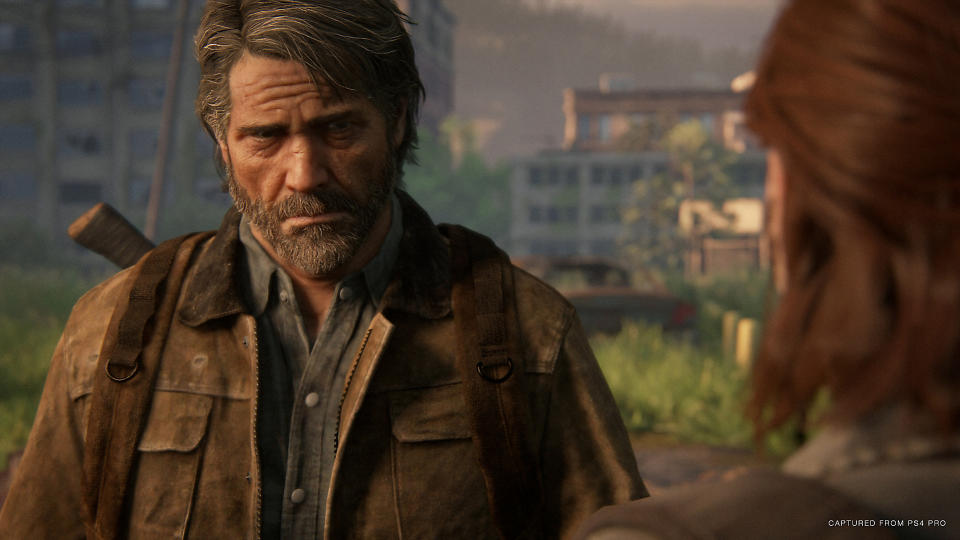2023 was a year of layoffs and acquisitions | This week's gaming news
This week's headlines, now in video form!
Welcome back to our weekly gaming news roundup. As the year comes to a close, we’re looking back on 12 months of massive change for the video game industry, driven by acquisitions, layoffs and unionization. You can read my story on consolidation for more on gaming's tough year.
This week’s stories
No Game Pass for Baldur's Gate 3
Baldur’s Gate 3 is officially the Game of the Year and after months as a PlayStation console exclusive, it’s finally available on Xbox. However, if you’re waiting for it to become available on Game Pass, stop. Baldur’s Gate 3 is never coming to Xbox or PC Game Pass, according to Larian Studios founder Swen Vincke. It’s a fantastic, big and lengthy game sold at a standard price of $70 — take it or leave it.
The Last of Us Online is dead

Naughty Dog has canceled The Last of Us Online, its multiplayer spinoff that’s been in the works for years. This isn’t too surprising, considering the lack of updates about the game, but it is now official. Naughty Dog said it didn’t have the resources to support a live-service game and also create new single-player narrative experiences, which are historically its thing. The studio has more than one of these games in development right now.
2023 was a pivotal year in games
2023 was a year of upheaval in video games. There were three main factors molding the industry: consolidation, layoffs and unionization.
In terms of consolidation, the biggest story of the year was the approval of Microsoft’s purchase of Activision Blizzard King for $69 billion. Microsoft is now the third-largest video game business in the world by revenue, right behind Sony and Tencent. Today, the Xbox umbrella covers nearly 40 studios, including Arkane, Bethesda, id Software, Infinity Ward, Mojang, Ninja Theory, Playground Games, 343 industries, and Turn 10.
Sony is more subtle than Microsoft about its attempts at total domination, but it owns 21 development teams, including Bungie, Guerrilla Games, Haven Studios, Insomniac, Naughty Dog and Sucker Punch Productions. It’s made a lot of purchases in the past three years, and invested heavily in studios like Epic Games and FromSoftware.
And then there’s Tencent, which has thousands of tentacles spread across the industry. Tencent owns a portion of Bloober Team, Paradox Interactive, PlatinumGames, Remedy, Roblox and Ubisoft, among others. It has a majority stake in Supercell, Tequila Works, Techland and others. It fully owns Riot Games, Funcom and, of course, others. It also runs multiple internal development companies and publishing labels.
Tencent also owns a 40 percent stake in Epic Games. This alone means any time you buy a game built on Unreal Engine, Tencent is getting a cut. If you played something this year, Tencent was probably involved.
There are clear short-term benefits of being bought by a larger company, but there are downsides to relinquishing independence. Acquired studios are held accountable by people outside of the actual development of a game, and the bigger the company, the further away its bosses are from the creative process.
The most extreme negative outcomes for an acquired indie studio are, of course, layoffs and closures. We saw a lot of these in 2023.
An estimated 9,000 people lost their jobs in the video game industry this year, up from about 1,000 in 2022. This is a crisis level of loss, and it was spurred by over-eager acquisition sprees by the companies at the top. Embracer Group, which owns more than 100 video game studios, laid off more than 900 people and it completely shut down multiple studios.
Unity laid off about 900 people this year. In November, the company reported a yearly revenue increase of 69 percent and executives told investors, “We continued to manage costs well.”
Epic Games fired about 830 people in 2023, including a chunk of the team at Fall Guys studio Mediatonic, which it purchased in 2021. EA dropped more than 1,000 employees this year, including significant cuts at Codemasters, a studio it purchased in 2021. CD Projekt RED, Sega, Ubisoft, and Microsoft’s 343 Industries also laid off at least 100 people each.
Looking back on the carnage this year, it feels like a warning — as consolidation efforts increase, more studios will be controlled by just a handful of companies, and they’ll be vulnerable to moves like mass layoffs and closures. We’re laying the foundation for the future of video games right now, and consolidation only makes the industry smaller and more generic. What will rampant consolidation mean for all of these acquired studios in five years’ time? What will it mean when these teams aren’t shiny, new investments any longer, and the people at the top are ready to get lean again?
Unionization is one approach that can help protect the livelihoods of people in the video game industry, and there was progress on this front in 2023. Developers at multiple studios now have union support, from small indies to AAA powerhouses. Microsoft is currently the home of the industry’s largest union, with representation for more than 300 quality assurance workers at ZeniMax Media.
Other companies with unions established in the past two years include Avalanche Studios, Anemone Hug, CD Projekt RED, Experis Game Solutions, Keywords Studios, Sega of America, Tender Claws and Workinman Interactive. We love to see it — and for the industry to remain stable, we need to see more of it.
Now playing
I’ve been unable to get The Talos Principle II out of my head since I previewed it and interviewed the developers a few months ago, and I’m finally, happily playing the game in its totality. I’m playing on a Steam Deck OLED, and I'm having a great time solving laser puzzles and talking about the meaning of life with a bunch of robots. I highly recommend you try the same.

